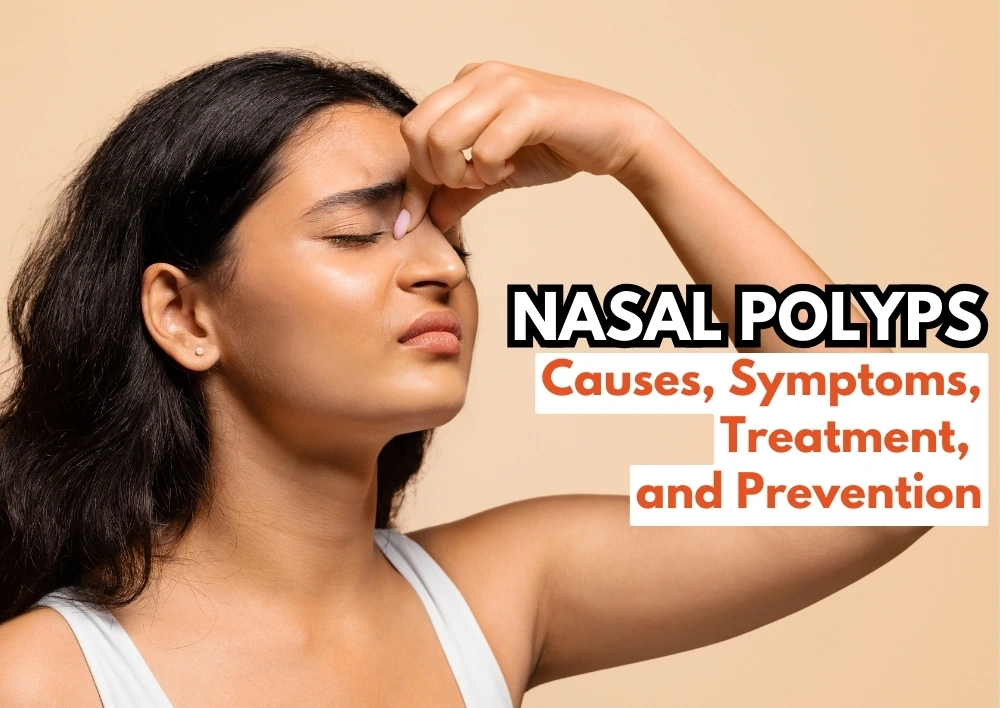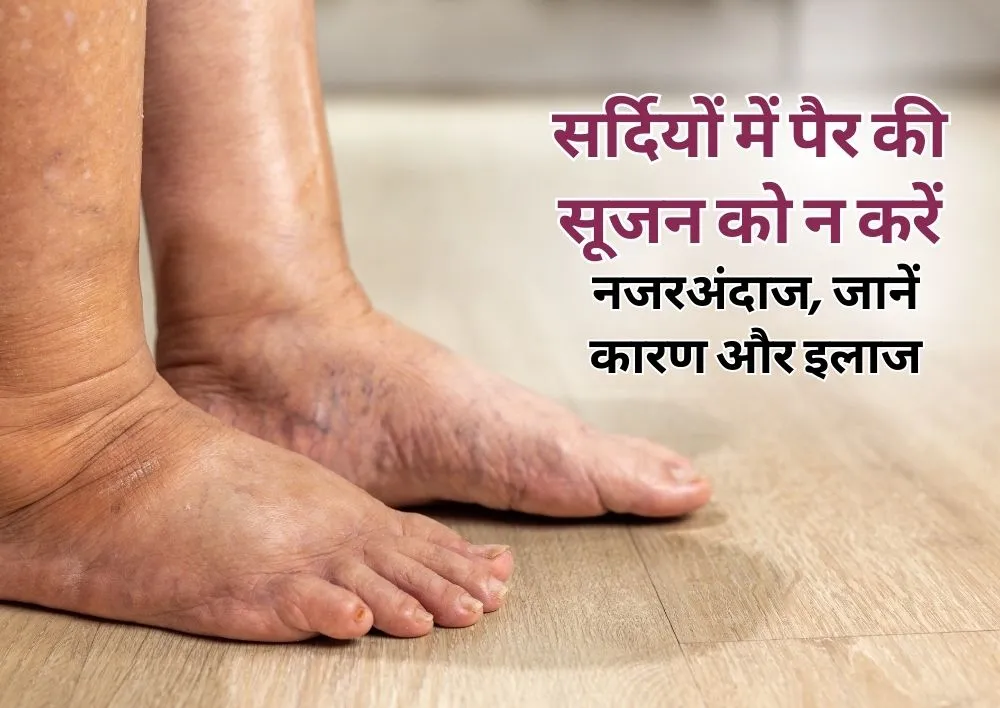Nasal Polyps: Causes, Symptoms, Treatment, and Prevention
Ever feel like you are always battling a cold, or is breathing more of a task than it should be? Nasal polyps might be the hidden reason behind these constant issues. These annoying little growths can be hard to spot, but knowing more about them can help you find relief and breathe easier. Let's explore nasal polyps to learn what they are, why they happen, and how you can handle them.
What are Nasal Polyps?
According to one of the leading ENT specialists in gurgaon at Miracles Apollo Cradle/Spectra, Nasal polyps are noncancerous growths that develop in the lining of the nasal passages or sinuses. They are soft and painless, and often go unnoticed until they grow large enough to block nasal airways, leading to breathing difficulties, loss of smell, and other frustrating symptoms. These teardrop-shaped growths can affect anyone but are more common in adults, especially those with conditions like asthma, allergies, or chronic sinus infections. According to research by the National Institutes of Health, nasal polyposis affects men more frequently (60.3%), at a mean age of 39.5 years.
What Causes Nasal Polyps?
The exact cause of polyps in the nasal cavity remains a mystery. When the lining of the nasal passages or sinuses becomes inflamed, it can result in fluid accumulation within cells, leading to the formation of polyps. Several factors may contribute to the development of nasal polyp disease, including:
-
Chronic Inflammation: Conditions like asthma, chronic rhinosinusitis, and allergic rhinitis can cause long-term inflammation in the nasal passages and sinuses.
-
Genetic Predisposition: A family history of nasal polyps or related conditions can increase the chance of developing polyps.
-
Allergies: Sensitivity to airborne allergens such as pollen, dust mites, or mold can also lead to chronic inflammation and polyp formation.
-
Infections: Repeated respiratory infections can contribute to the inflammation of nasal passages, setting the stage for polyp development.
-
Aspirin Sensitivity: Individuals with aspirin sensitivity, especially those with asthma, are at a higher risk of developing nasal polyps.
Recognizing the Symptoms of Nasal Polyps
Nasal polyps themselves are often asymptomatic, but their presence can lead to various noticeable symptoms. The symptoms can vary depending on the size and location of the polyps. Common symptoms of nasal polyp disease include:
-
Nasal Congestion: Constant congestion that doesn't improve with typical cold or allergy medications is a common sign of nasal polyps.
-
Runny Nose: A continuous runny nose or postnasal drip can indicate the presence of polyps.
-
Loss of Smell or Taste: Polyps can obstruct the olfactory area, leading to a reduced or lost sense of smell and taste.
-
Facial Pain: Large polyps can cause a feeling of pressure or pain in the face, especially around the eyes and forehead.
-
Snoring and Sleep Apnea: The blockage caused by polyps can result in snoring and potentially lead to obstructive sleep apnea.
-
Frequent Sinus Infections: The blockage and inflammation can make you more susceptible to recurring sinus infections.
Diagnosing Nasal Polyps
If you experience constant nasal symptoms, it's important to consult an ear, nose, and throat dr near me for an accurate diagnosis. The doctor may use several methods to identify nasal polyps, including:
-
Nasal Endoscopy: A small camera inserted into the nasal passages allows the doctor to see the polyps and evaluate the area of the blockage.
-
Imaging Tests: CT scans or MRIs can provide detailed images of the sinuses and help assess the size and location of the polyps.
-
Allergy Tests: Identifying any underlying allergies can help in managing the inflammation that contributes to polyp formation.
-
Biopsy: In rare cases, a small tissue sample may be taken to rule out other conditions.
Treatment Options for Nasal Polyps
While nasal polyps can be bothersome, various treatment options are available to relieve symptoms and improve nasal airflow. The choice of nasal polyps treatment depends on the size of the polyps and the severity of the symptoms.
Medications
-
Nasal Corticosteroids: These sprays help reduce inflammation in the nasal passages, shrinking the polyps and relieving symptoms. Commonly prescribed nasal corticosteroids include fluticasone, mometasone, and budesonide.
-
Oral Corticosteroids: For larger or more stubborn polyps, a short course of oral corticosteroids like prednisone may be prescribed.
-
Antihistamines: These medications can help manage allergy symptoms and reduce inflammation, making them useful for those with allergy-related polyps.
-
Antibiotics: If a bacterial infection is present, the doctor may prescribe antibiotics to clear the infection and reduce inflammation.
-
Biologics: Newer treatments like biologics, target specific immune responses to reduce inflammation and shrink polyps.
Surgery:
In cases where medications do not provide sufficient relief, nasal polyp removal surgery may be necessary. The most common surgical procedure is endoscopic sinus surgery, which involves using a small camera and instruments to remove the polyps and improve sinus drainage.
Nasal Polyps Treatment at Home
In addition to medical treatments, several home remedies and lifestyle changes can help manage symptoms and prevent the recurrence of nasal polyps. The home treatment for nose polyps may include:
-
Saline Nasal Rinse: Using a saline solution to rinse your nasal passages can help clear out allergens and reduce inflammation. You can use saline spray for this purpose.
-
Steam Inhalation: Inhaling steam can help open up nasal passages and reduce congestion. Add a few drops of peppermint oil to a bowl of hot water, cover your head with a towel, and breathe in the steam for relief.
-
Essential Oils: Some essential oils, like tea tree oil and lavender, have anti-inflammatory properties. Dilute a few drops in carrier oil and apply it gently to the nasal area or use them in a diffuser.
-
Turmeric: Known for its anti-inflammatory properties, turmeric can be included in your diet or taken as a supplement to help reduce inflammation.
-
Vitamin D: Ensuring adequate vitamin D levels can support your immune system and reduce the risk of nasal polyps. Spend time in the sun and include vitamin D-rich foods in your diet.
-
Stay Hydrated: Drinking plenty of water helps thin mucus secretions and supports healthy sinus function.
Preventing Nasal Polyps
While it may not be possible to prevent nasal polyps entirely, you can take several steps to reduce your risk and manage symptoms effectively:
-
Manage Allergies: Stay alert about controlling allergies with medications, avoiding triggers, and keeping your environment allergen-free.
-
Treat Infections Quickly: Address respiratory infections quickly to prevent chronic inflammation and reduce the risk of polyp formation.
-
Use a Humidifier: Keeping the air in your home moist can help soothe irritated nasal passages and reduce inflammation.
-
Practice Good Hygiene: Regularly wash your hands and avoid touching your face to minimize the risk of infections.
-
Avoid Irritants: Stay away from tobacco smoke, chemical fumes, and other environmental irritants that can exacerbate nasal inflammation.
-
Stay Hydrated: Drinking plenty of fluids can thin mucus secretions and promote healthy sinus function.
Lifestyle Changes for Better Nasal Health
In addition to medical treatments, certain lifestyle changes can enhance nasal health and improve overall well-being:
-
Dietary Modifications: Consuming a diet rich in anti-inflammatory foods such as fruits, vegetables, and omega-3 fatty acids can help reduce inflammation and support immune health.
-
Regular Exercise: Engaging in regular physical activity can improve circulation and boost the immune system, reducing the chance of infections and inflammation.
-
Stress Management: Chronic stress can weaken the immune system and worsen inflammation Including stress-reducing practices like yoga, meditation, or deep breathing exercises can be beneficial.
Conclusion:
Nasal polyps can be a frustrating and disruptive condition, but with the right knowledge and treatment, you can regain control of your nasal health. By understanding the causes, recognizing the symptoms, and exploring the various treatment options, you can breathe easier and enjoy life to the fullest. If you suspect you have nasal polyps, consult an ENT doctor near me at Miracles Healthcare to explore the best strategies for your unique situation. Remember, a clear path to better breathing is just a step away!














Was the information useful?
5 0